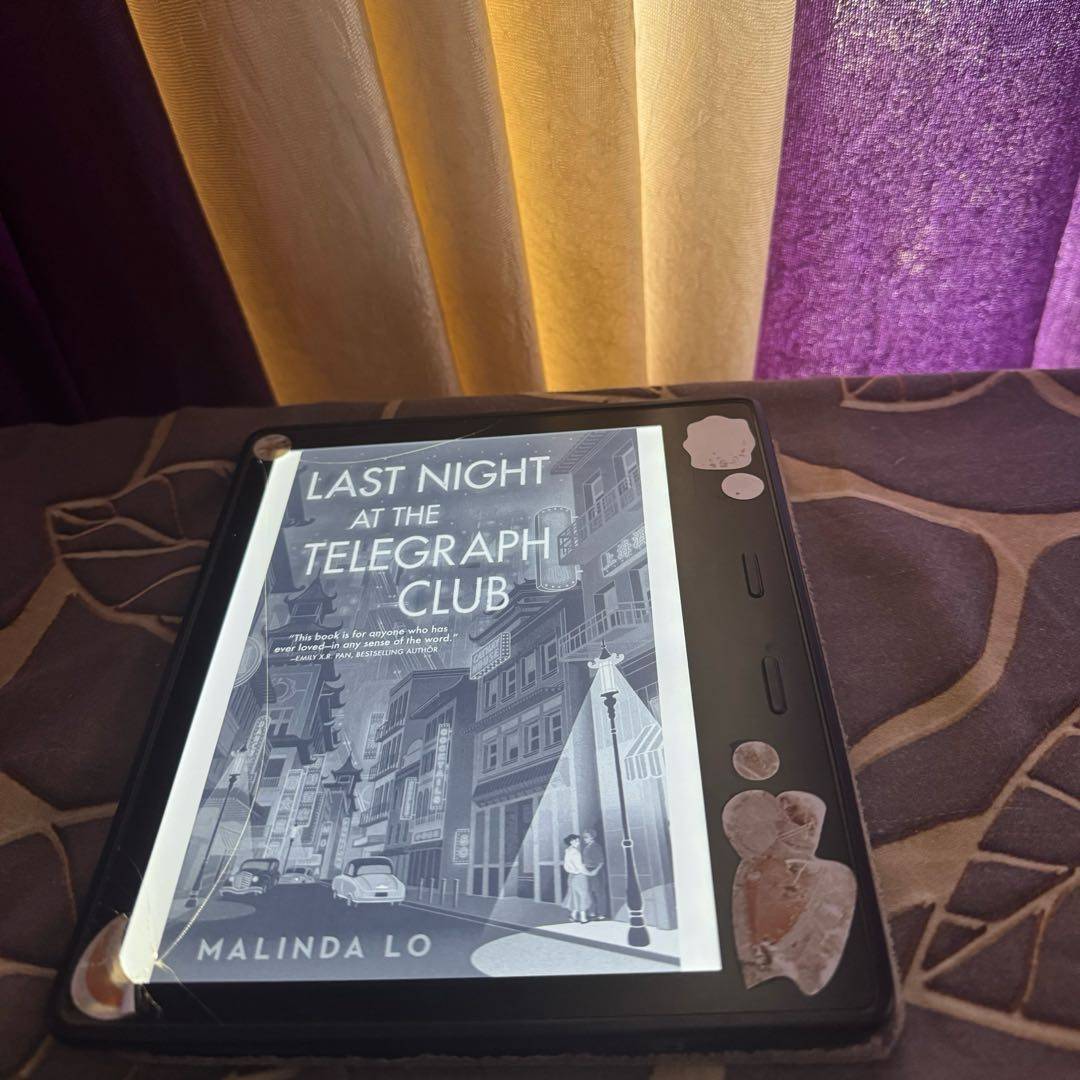
A coming-out story set in the 1950s; there were a lot of sub plots which served no purpose whatsoever so that bummed me out!

A coming-out story set in the 1950s; there were a lot of sub plots which served no purpose whatsoever so that bummed me out!
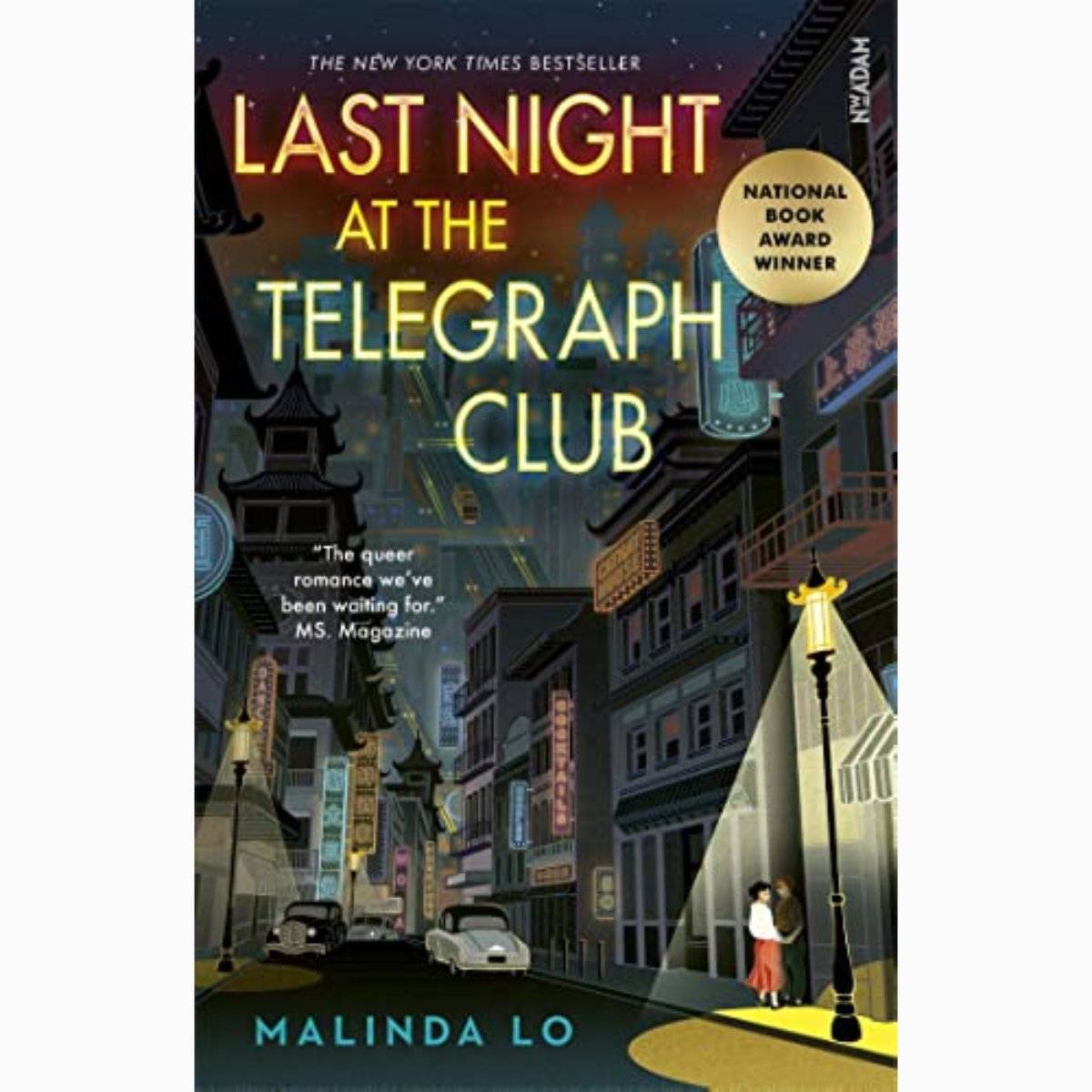
Lily's self-discovery as a Chinese-American lesbian in early 1950s San Francisco.
A map of SF would definitely have helped. Location obviously had an important effect on how Lily was feeling at various points in the story but the street names didn't really help me locate myself. But still an interesting and engaging story. I did spend quite some time unsure whether the title meant yesterday evening or the final appearance/performance.

The Miss Chinatown contestants were clustered together behind a canvas screen near the stage.
#FirstLineFridays
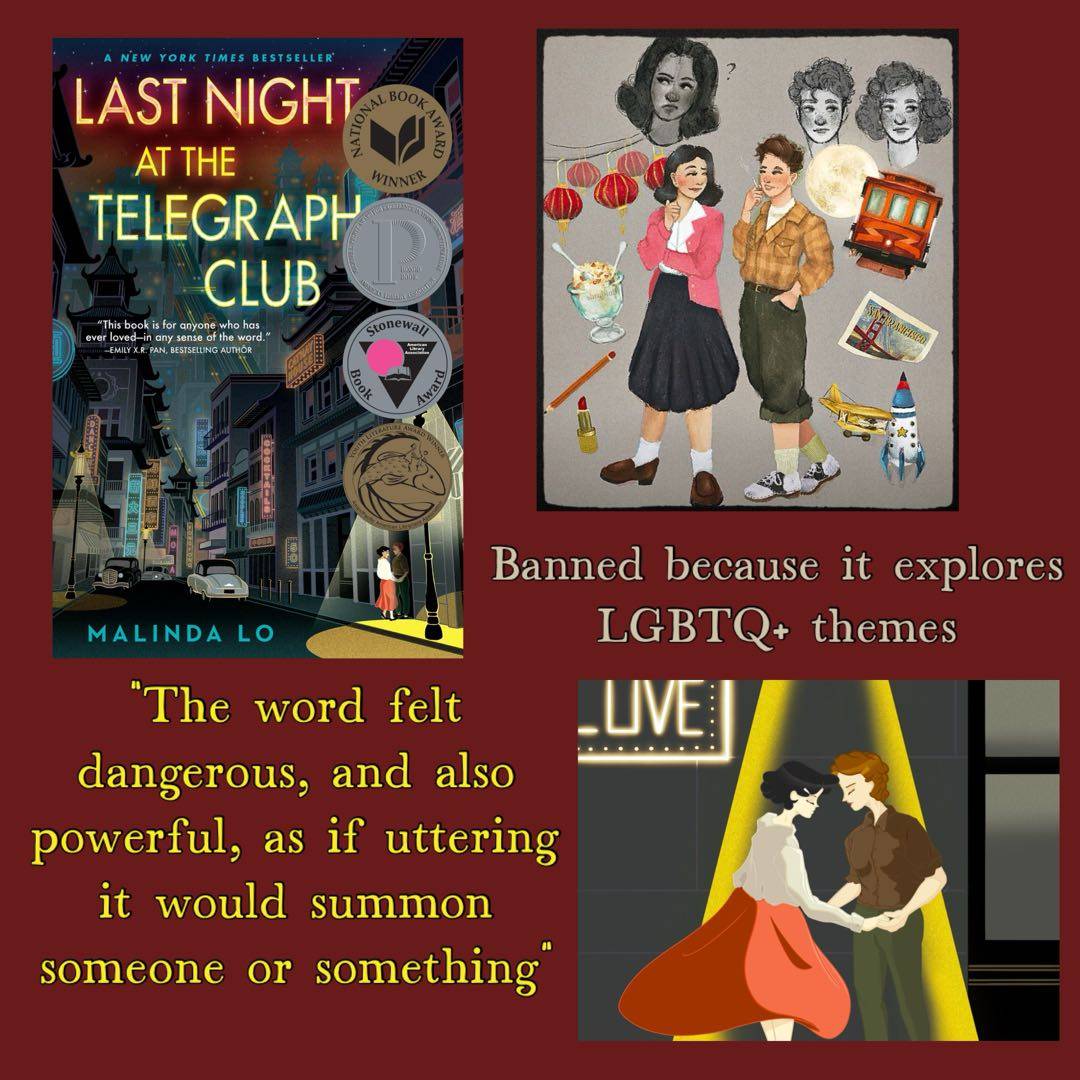
5⭐️ I loved it! This book is banned because of its LGBTQ themes, but I think they were missing the bigger picture of the story. It‘s about being true to yourself and standing up for what you believe in. It‘s about facing persecution whether it‘s for gender, race or sexuality. It‘s about overcoming obstacles and learning that just because somebody has always been in your life doesn‘t mean they should be. #ReadBanedBooks
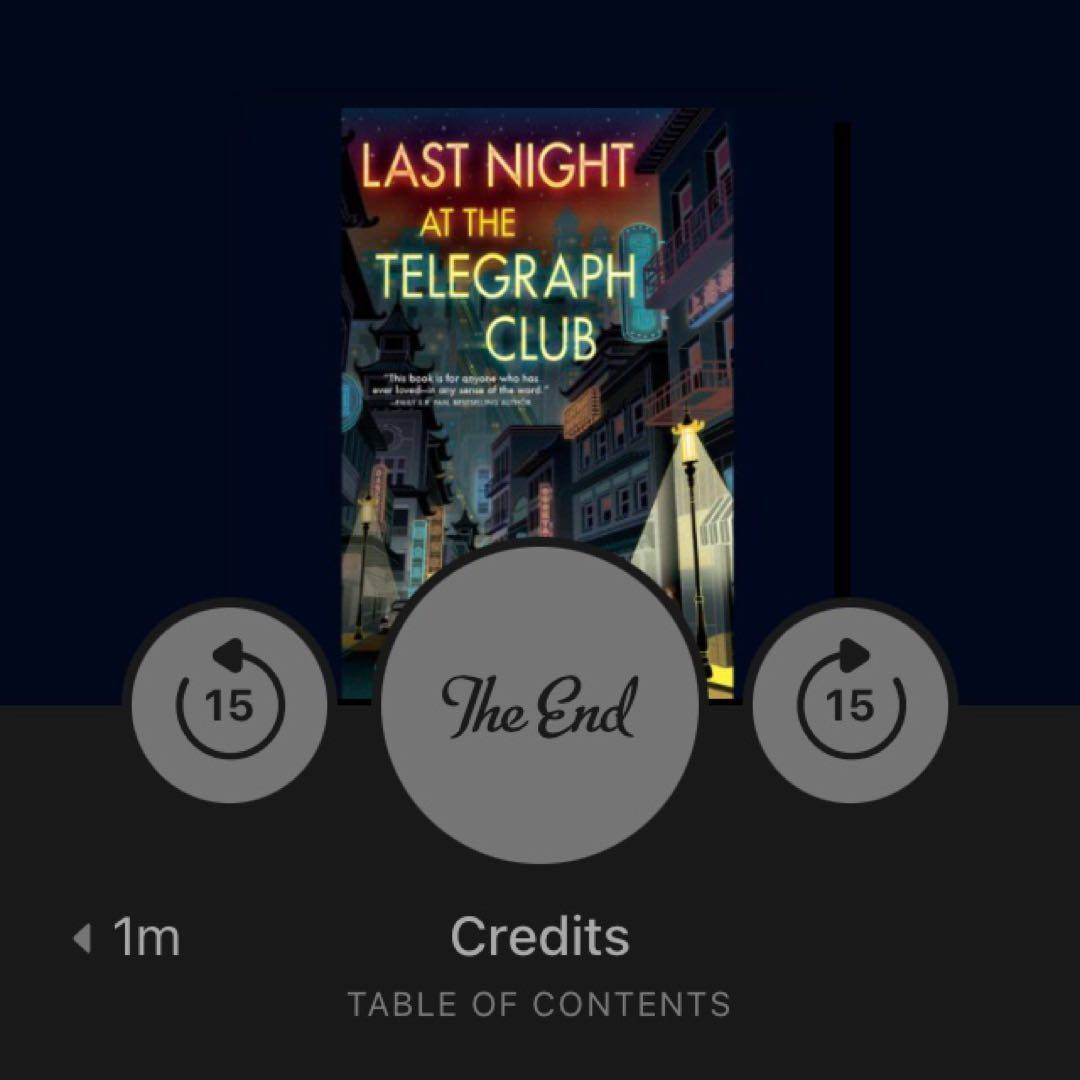
Lily‘s high school year is greatly complicated by McCarthyism, developing feelings for a new friend, & a desire to shoot for the stars.
This was a hard listen, but fantastic. High school stories are always tricky for me, but this was beautifully done. Lily‘s strength of character dealing w/ homophobia, her father getting investigated for links to communism, & a toxic friendship was amazing. Wasn‘t a fan of the time skip @ the end. 🌕🌕🌕🌕🌑
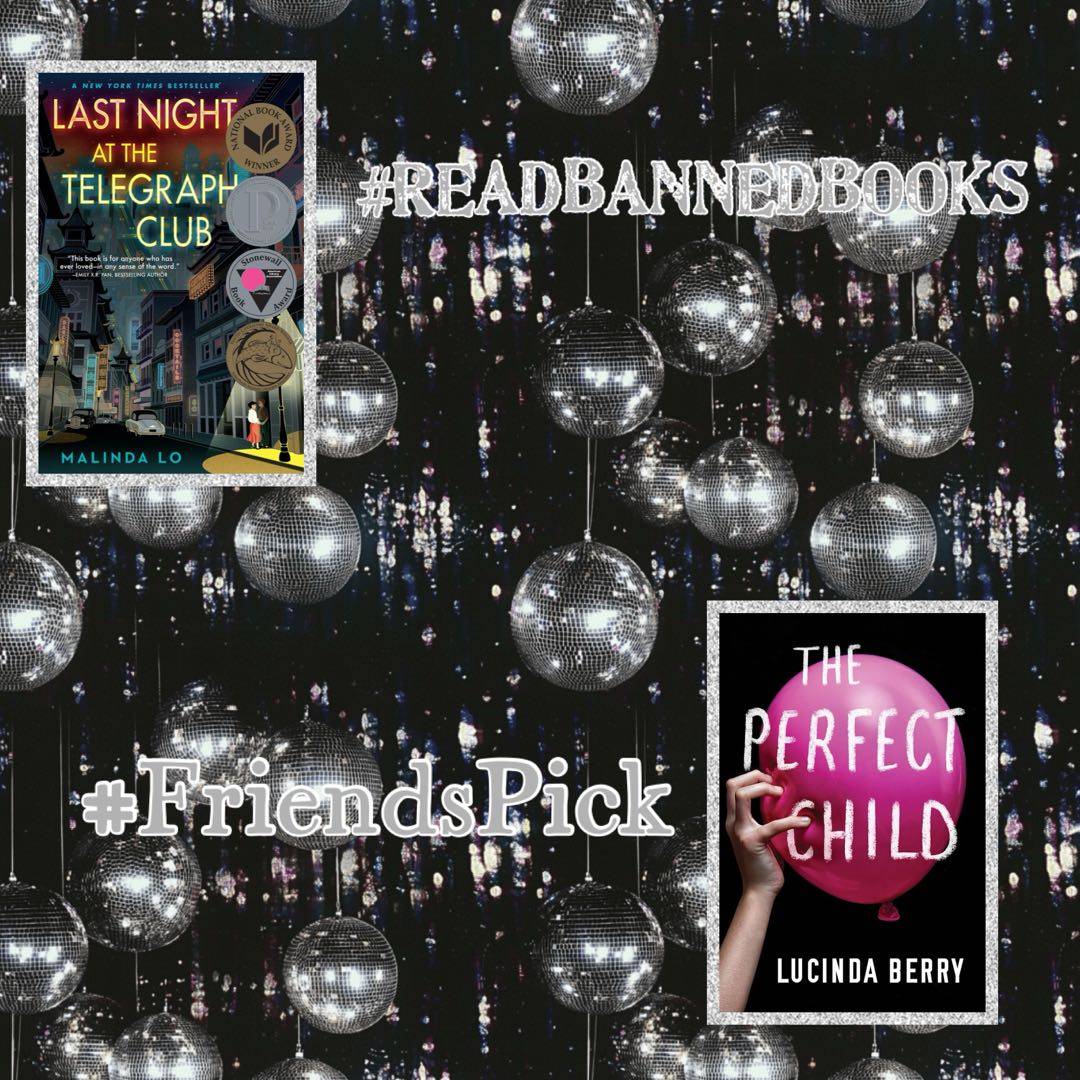
So here are the books for my January #ReadBannedBooks and my #FriendsPick challenge. I‘m excited to get the chance to experience books that have been banned for various reasons. But I think my favorite thing about this challenge is reading what my friends pick for me. All of them are so very different and I get to experience new styles of writing. Sometimes it even gets me out of my comfort zone, which I think is good.
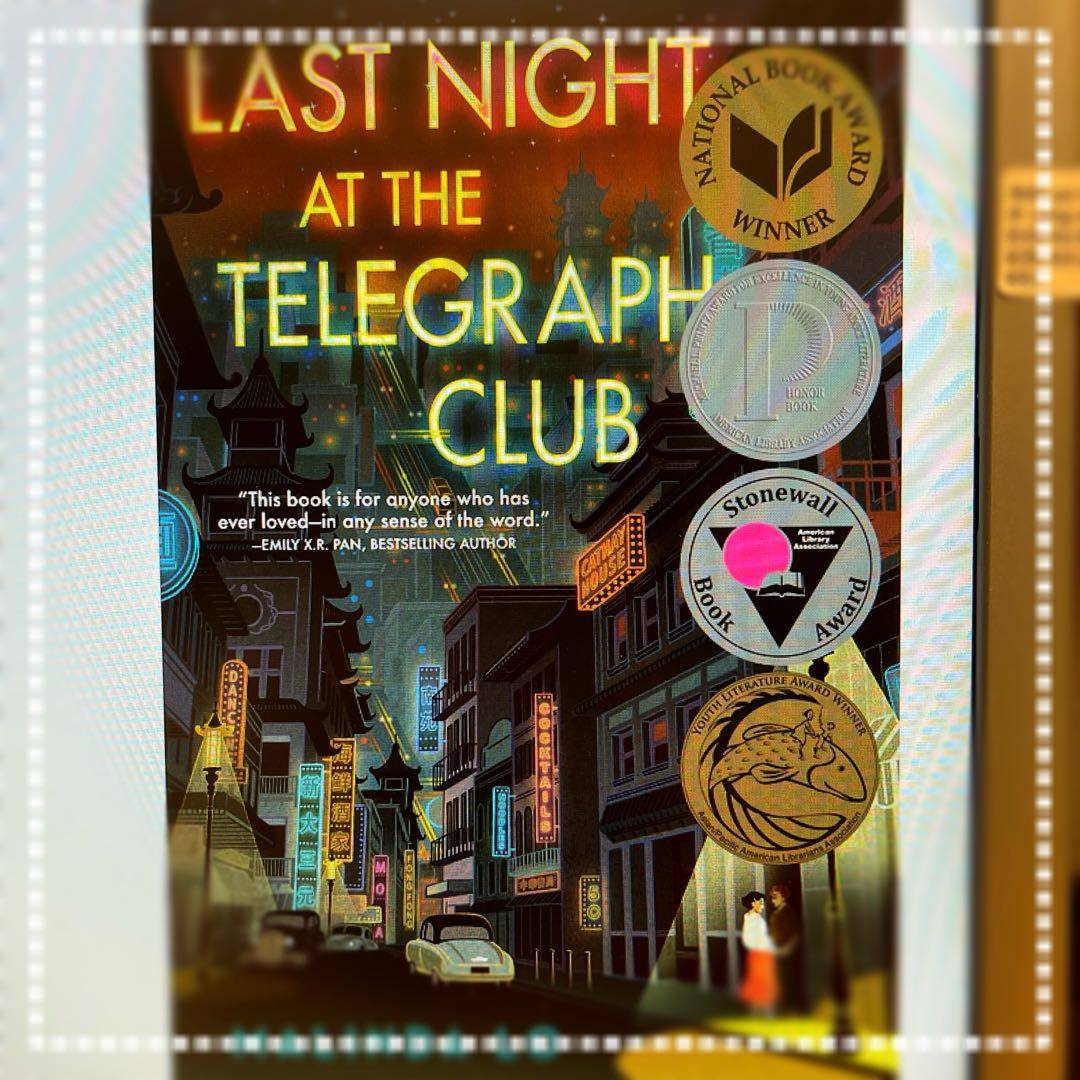
Deserving of all the awards it‘s received. A tender, sapphic romance told from the perspective of Lily, a Chinese American girl living in San Francisco‘s Chinatown in the early 1950s. For a YA romance that actually has something at stake, the romance isn‘t particularly angsty in the way that so many books that are YA and/or romance tend to be. The emotions are realistic. And the historical setting is evocatively drawn.
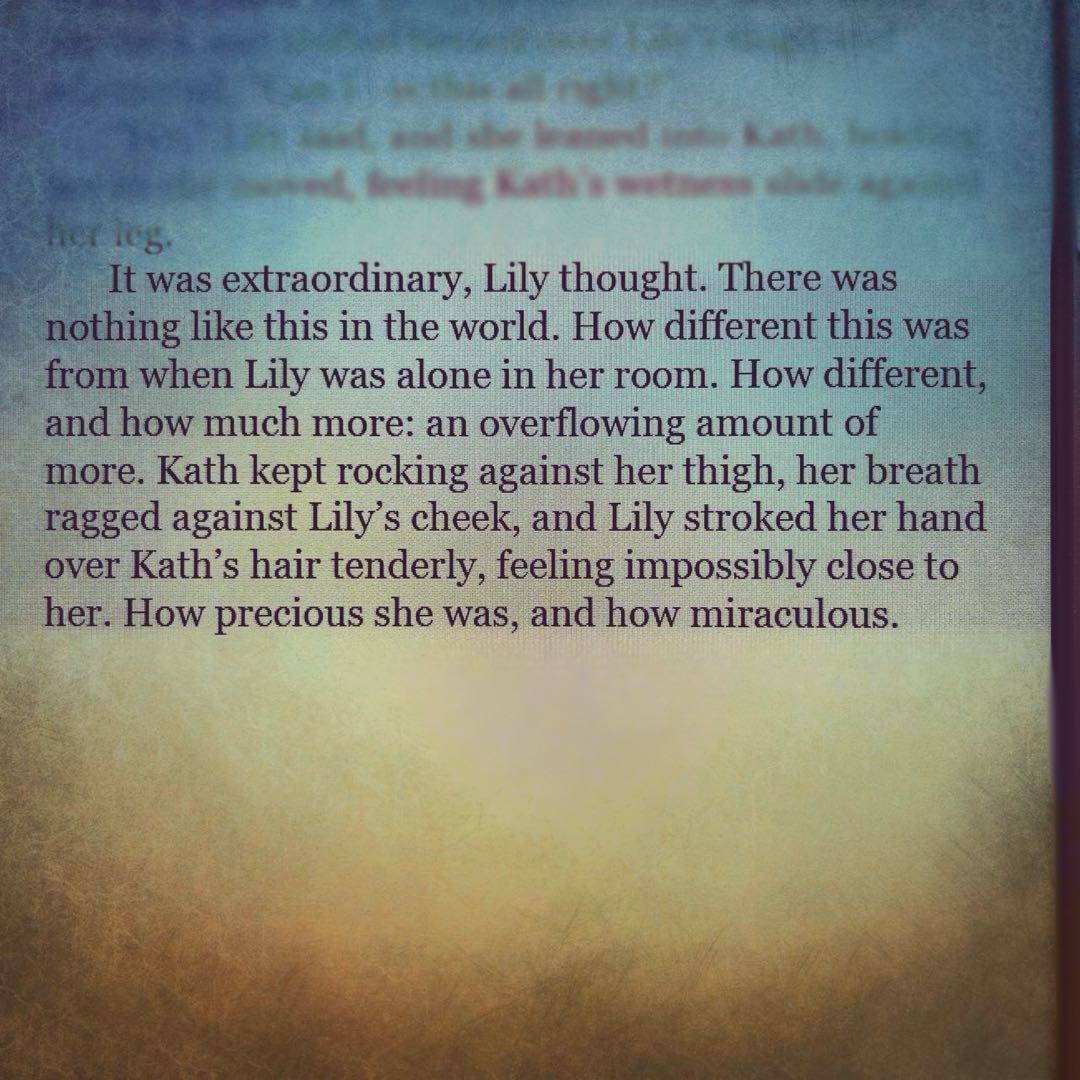
“It was extraordinary, Lily thought. There was nothing like this in the world. How different this was from when Lily was alone in her room. How different, and how much more: an overflowing amount of more. Kath kept rocking against her thigh, her breath ragged against Lily‘s cheek, and Lily stroked her hand over Kath‘s hair tenderly, feeling impossibly close to her. How precious she was, and how miraculous.”
I like that Malida Lo included the time period and the struggles of unbending family ideals in this book. Although this story is fiction, there are many people who have faced similar events to that of Lily and Kath, and I think that this book gives readers a little bit of an inside look at some of the very real struggles that they were faced with.
I like the thought and detail that Lo put into the coming of age aspect of this book. I think that allowing us to have a look at Lily's thoughts, questions, and ideas about the girls she sees in the pageant as a young child and then picking up the story when she is a student in high school gives us a sense of progression in the story that we wouldn't otherwise have, especially if the prologue had been different.
I think Malinda Lo did a great job of taking us through Lily's journey of self-discovery, and I think that the progression of the story and the way it's told makes this is a good book for high school students. Lo takes us through Lily and Kath's timeline showing Lily's growing feelings for her in way that young readers will understand, and also shows us how the time period and Lily's family both play a part in her self-discovery.
I enjoyed this book very much. As someone who is heterosexual, I think that we often don't think about just how many hardships and struggles people in the LGBTQ+ community face, and this book really made me consider how Lily had to face this in 1954 as a Chinese American, facing backlash from those around her, including her family.
I really enjoyed this book and I am excited to have it in my classroom library. I feel like it would be a great read for high schoolers of all identities. I think some students will be able to feel very seen in this book, which is very comforting at their age. Students who do not see themselves in one of the characters can walk away feeling that they've been privy to a perspective that they may not be familiar with. Overall, great read for all!
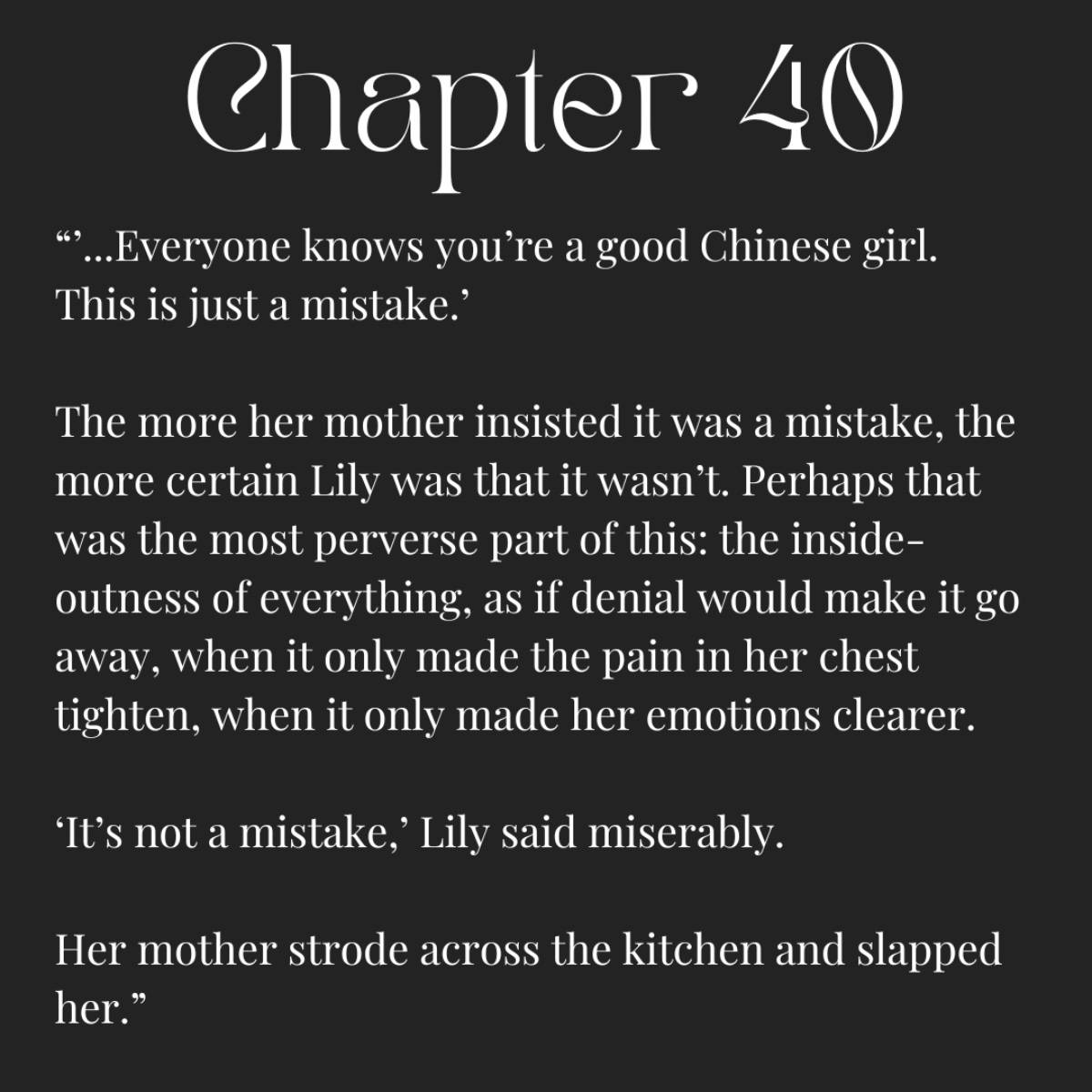
I chose this quote because I enjoyed the way that Lily found some self-reassurance in this confrontation with her mother. Lily describes her self as becoming more certain and her emotions becoming more clear as her mother yells at her. I think this scene illustrates a certain line being drawn in Lily and her mother's relationship. This realization/boundary allows Lily to express that “It's not a mistake“ knowing that there will be repercussions.
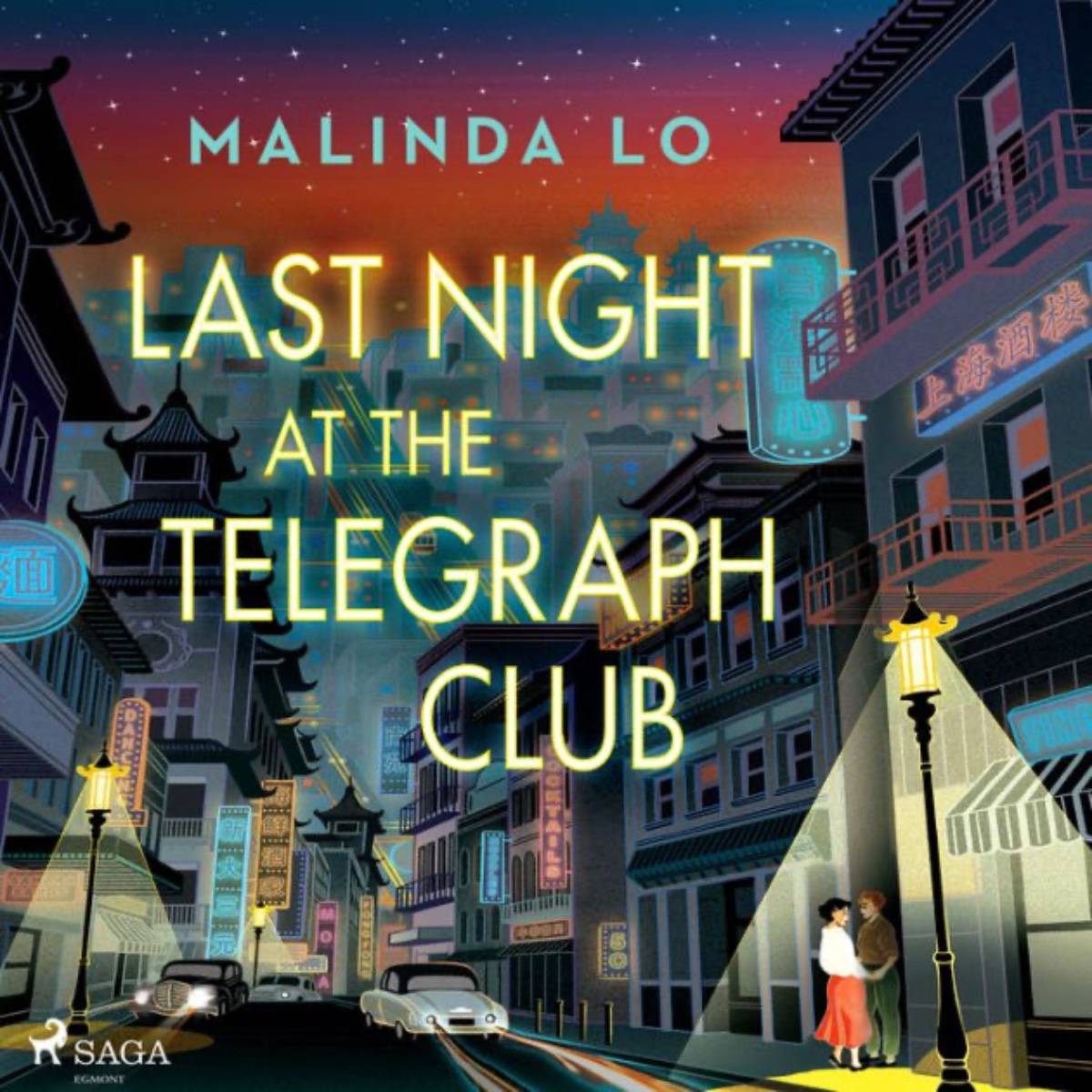
I really loved the epilogue of this book! I appreciated how Lily and Kath were given a “happy ending“ in the epilogue. Though we do not know exactly what their future holds, I like the message that despite the trials, they can still be happy together. I think queer stories can focus on tragedy and I am glad that young queer kids will be able to read a story where the two MC's end up happy. I would be happy to have this book in my class library!
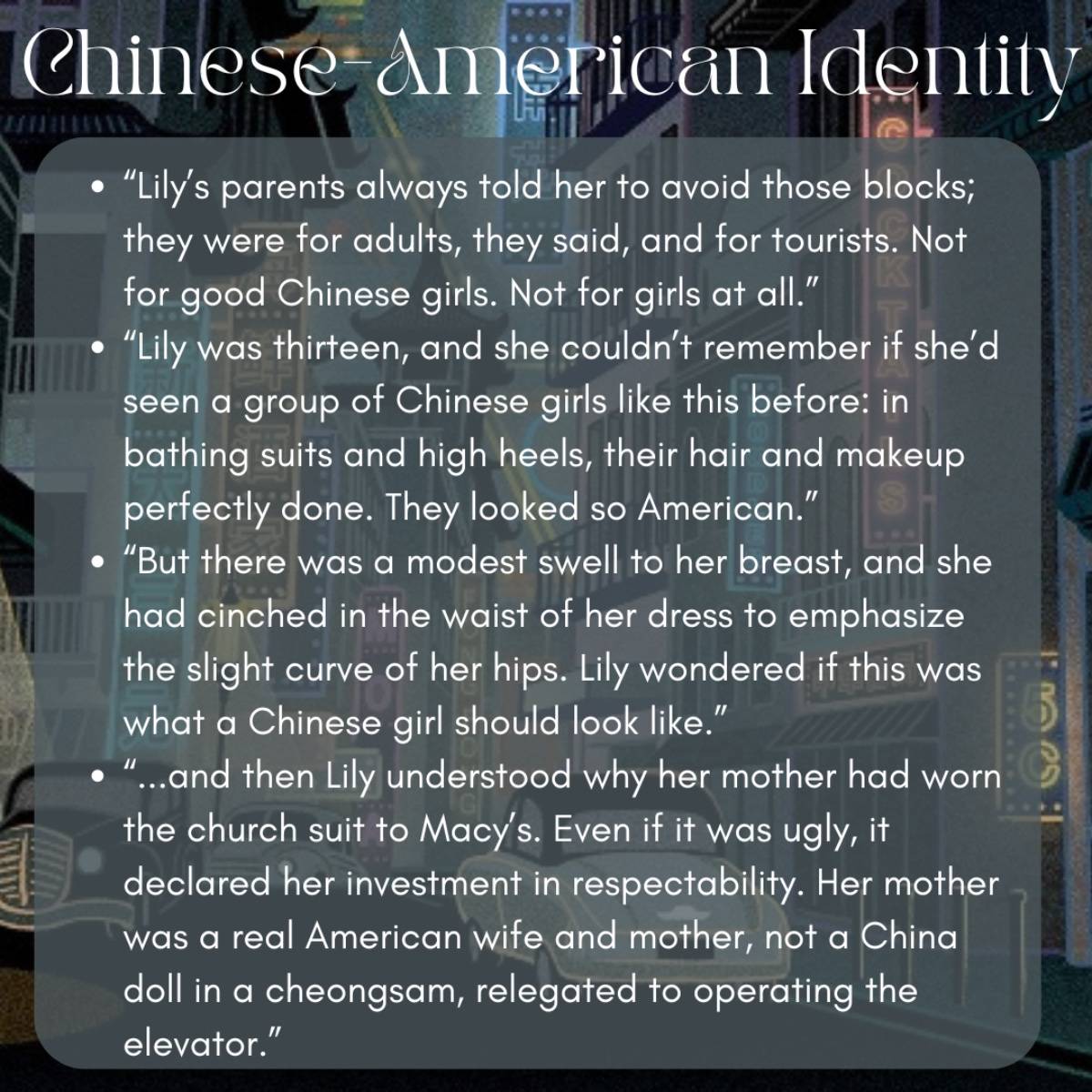
I chose a few quotes from the book that embody the fight of navigating a foreign cultural identity in America. These quotes came together because almost all of them use the term “Chinese girl“ in a way that creates a predetermined identity/caricature. Throughout the book we see Lily struggle with balancing her parent's traditional values and her own desires for independence. This confusion only deepens when Lily realizes her feelings for Kath.
One of the quotes in this book that stood out to me was in the prologue, “ Lily was thirteen, and she couldn‘t remember if she‘d seen a group of Chinese girls like this before: in bathing suits and high heels, their hair and makeup perfectly done. They looked so American.” This is what was presented as a “good” Chinese American citizen. I think this is impactful because of the time period and how they experienced extreme racism during this time.
I found it really interesting to see the lesbian community at the Telegraph Club. Through Lily, we see the diverse relationships within this community, and it also shows how the club is both a social hub and a sanctuary where people like Lily can explore their identities.
I liked Lo‘s heartfelt portrayal of Lily‘s journey to self-discovery in 1950s San Francisco. I thought Lo captured how complicated it was for Lily to explore her queer identity and the cultural tensions with such sensitivity and depth.
I feel like this is such a great option for student representation in the classroom. I‘m glad I can add it to my repertoire of books for my personal classroom library for my future class!!! Really though, I appreciate the exploration of gender and sexuality through a historical lens that is so prevalent in today‘s society. I had to listen to the audio version (Libby was booked out AGAIN), but even there, it was a great story portrayed audibly and—
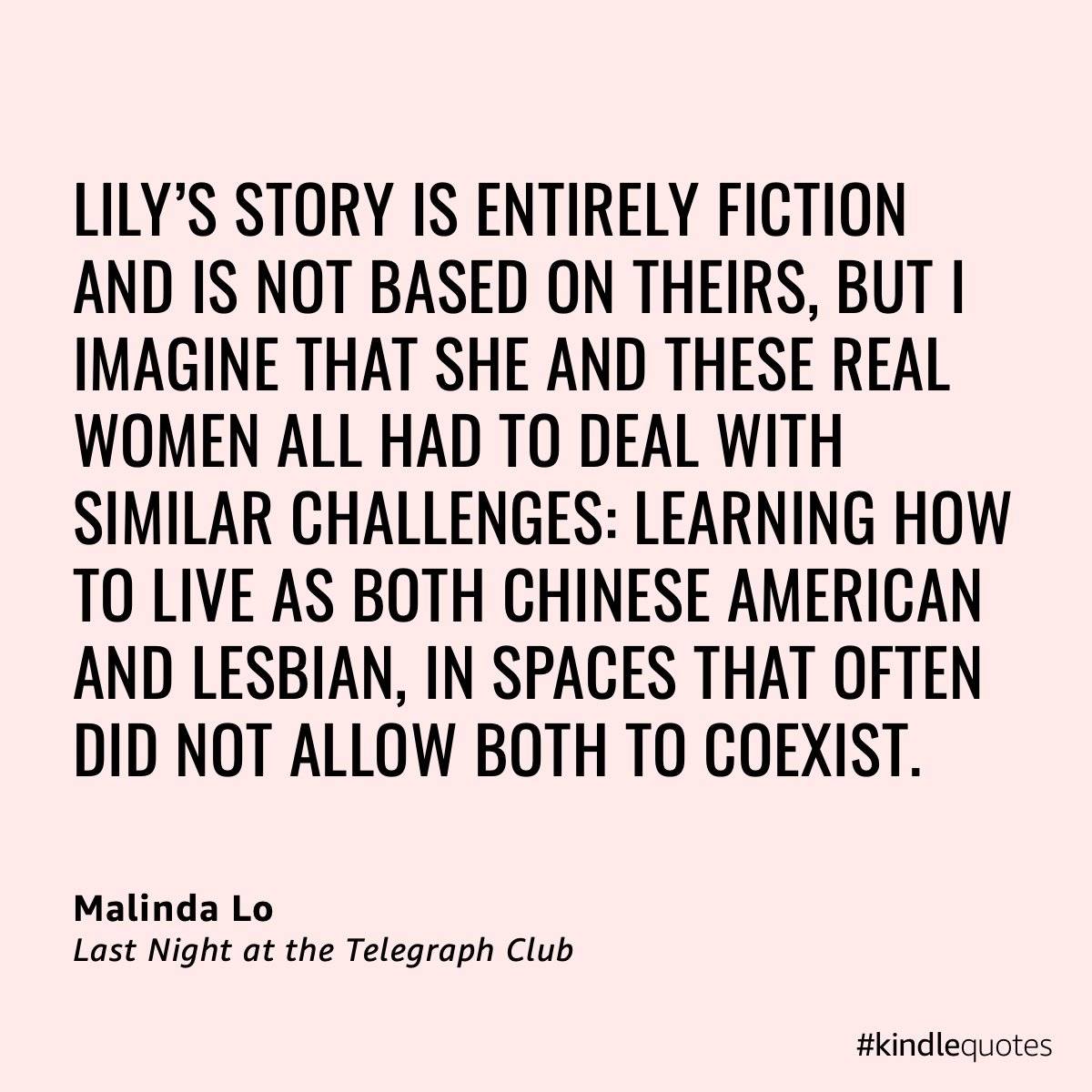
I liked how Lo portrayed the Telegraph Club in this novel; it was one of the few places where Lily, and many individuals like her, could be her most authentic self without shame. I think it is important for young readers to read this novel and understand that no matter where they are in the world, they should also be free to exist as their most authentic selves, just like Lily did at this club (and with Kath).

Lily was a such a well-written teen-aged character, in my opinion. Despite this novel taking place in the 50s, Lily still struggled with things that high schoolers today struggle with--things like sexuality, friendships, aspirations/careers, familial dynamics, etc. Lily struggled, but she also persevered and found ways to live a life that she wanted. For this, I think this novel is very well-suited for young readers who may relate to Lily.
I really enjoyed how this novel navigated Lily's feelings. Her struggle with her sexual identity was obviously a key factor of the novel, but the cultural and familial expectations placed upon her were also important to Lily's personal development. The hardships Lily endured in a time period defined by conformity was interesting to read, and it made this novel very captivating.
I don‘t want to sound repetitive, but this book feels so timeless once again. When Lily‘s parents plan on sending her away once they found out her sexuality, it made me so upset, but this still happens today! Why does it matter, and why is it anyone else‘s business who you love? I feel like this would be a great book for students to read to feel related and connected because especially in our state (& rural areas) this is exactly what happens.
I would love to include this book in my future classroom library. I think it would be really great for students to be exposed to a story like this, and for students who might relate to see someone like them in fiction. The love story itself was so beautifully told, and the historical setting made it feel so much more impactful because of the danger and urgency of Lily and Kath‘s relationship.
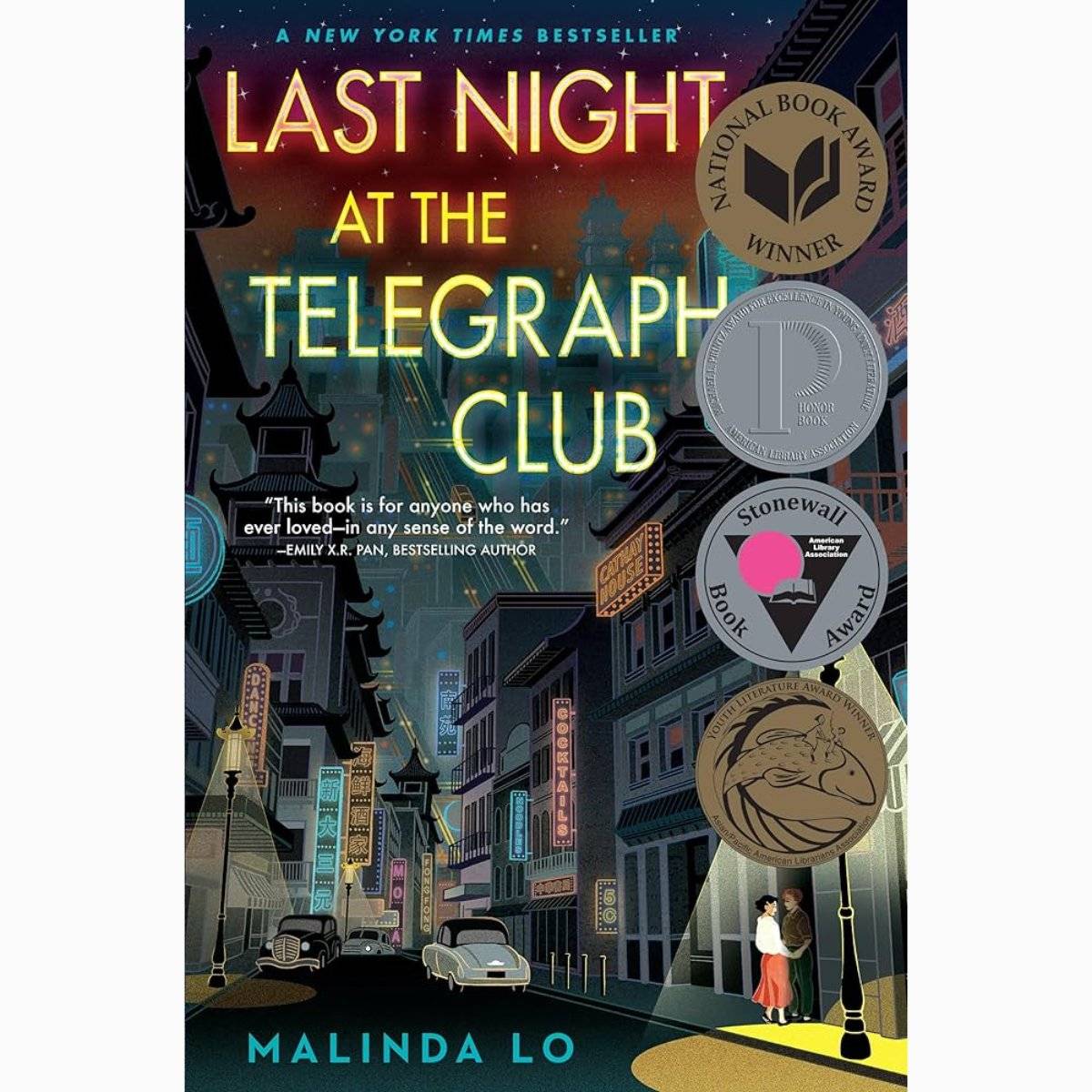
I liked that the author included a physical timeline to follow along with and that she included backstories for Lily‘s family. It added a lot more depth to them to get to see their perspectives and experiences, and I loved that Lily had her Aunt Judy to confide in and feel safe discussing her interests with. She really didn‘t have many people like that in her life.
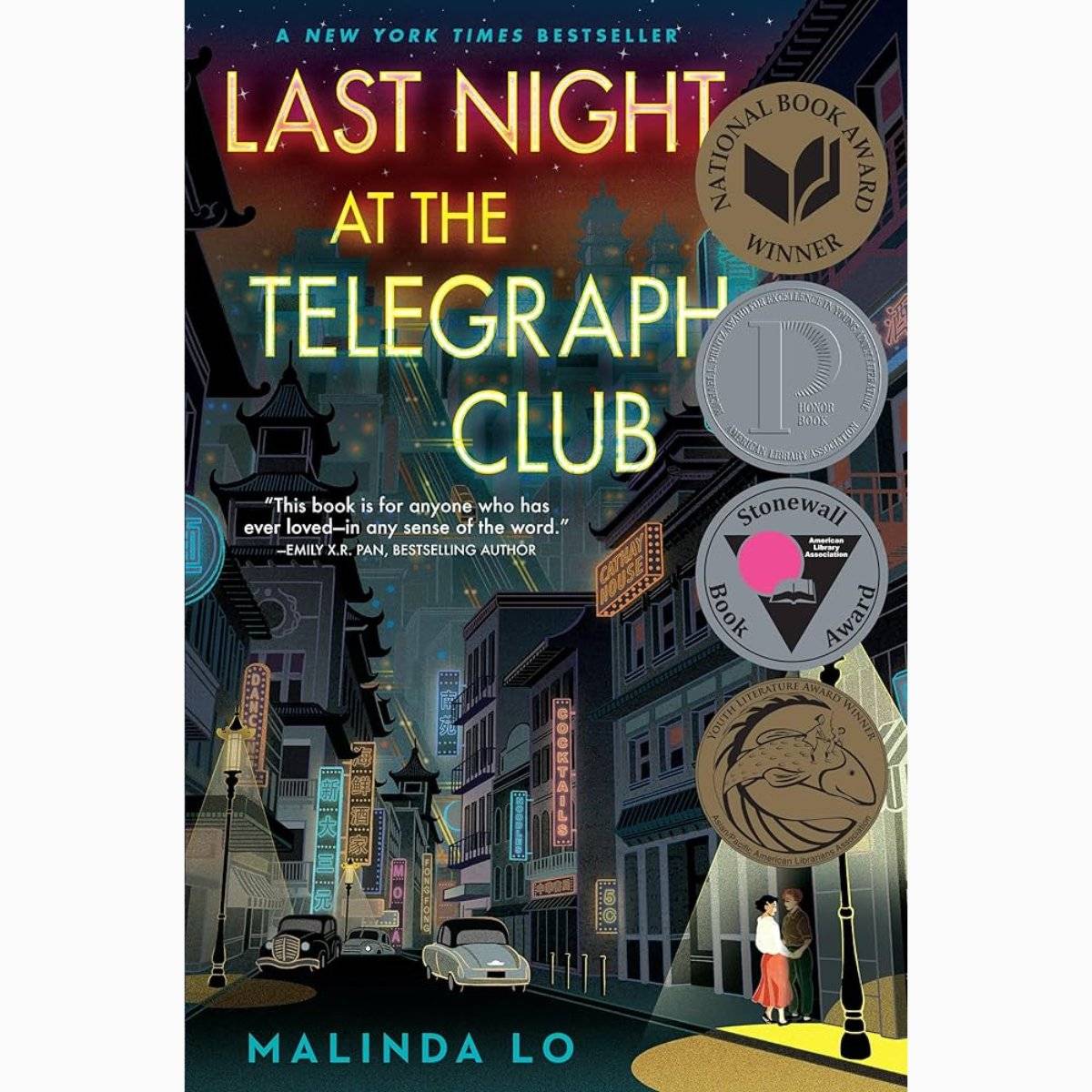
I loved the scenes where Lily talked to Shirley and her parents. Even though it was such an emotional scene, and it even made me anxious and scared for Lily, I loved her mindset of not wanting to lie about who she is and having it be her own choice to tell her mother herself, rather than have it come from someone else. I love the way Lily grew to not be completely ashamed and repress who she is for the sake of conformity or other people‘s comfort.
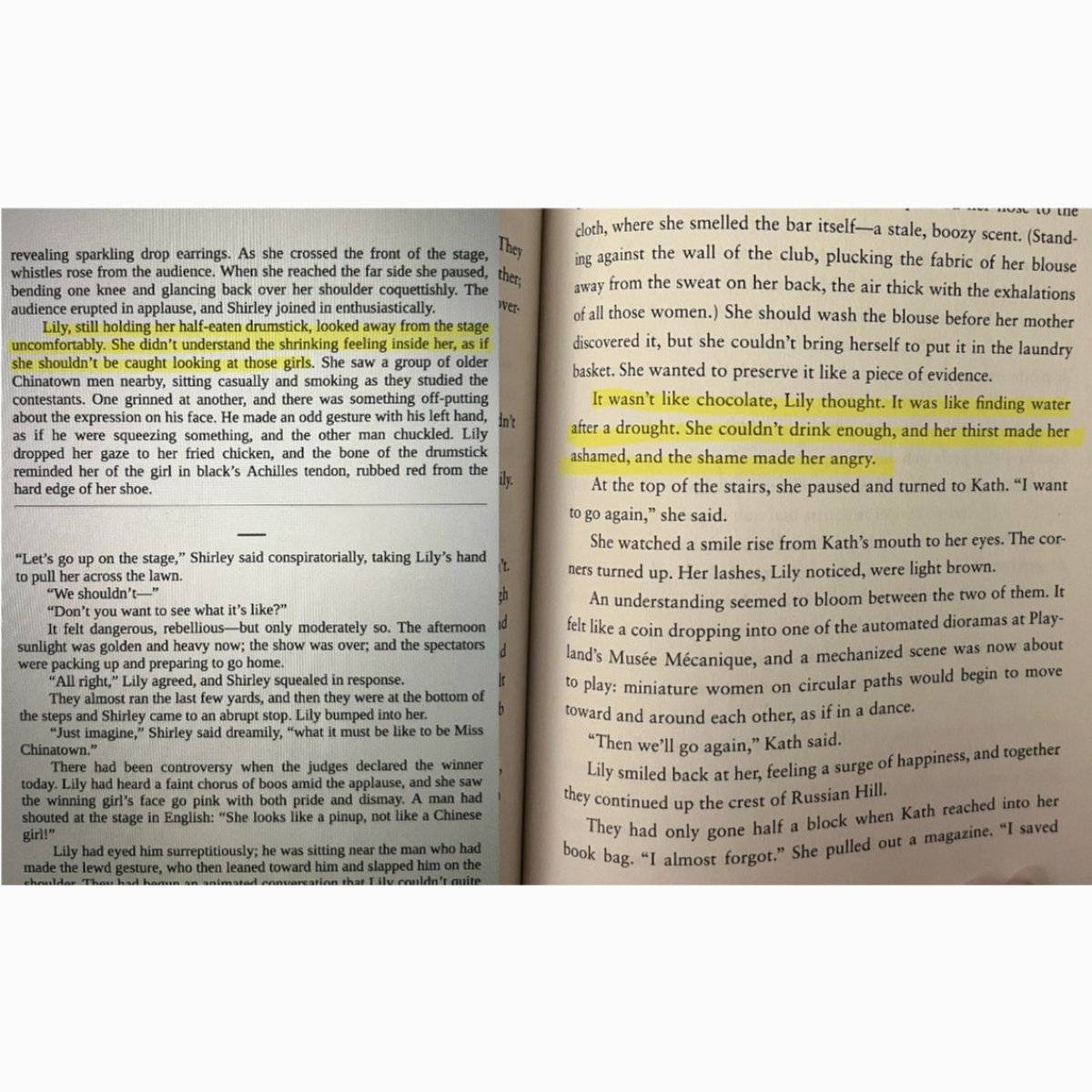
I loved the way Lo wrote Lily‘s attraction to women. Her hesitance, shame, and initial confusion in the first half of the novel were some of my favorite parts because of how real and relatable it is. As much as times have changed since the 1950s, many people and places still feel the same prejudices that were present at that time. I think it‘s important to see the way that that affects queer people and how they view themselves.
So many themes of this book are timeless. To me, it‘s mainly the microaggressions, and blatant, racism and homophobia that stand out as timeless. I think of how Shirley warns Lily to not befriend Kath because of Jean in the beginnings of their relationship. I have experienced this with my lifelong best friend when she came out. There are so many hateful things that people say they “warn” me about, and it‘s disgusting. But it‘s so REAL & timeless.
Once again, I love this book so much and love it even more the second time around! The representation of complicated familial relationships and friendships, queer history, issues with racism, and overall coming of age story of finding your self identity makes for an amazing read that‘s so beneficial for young readers. I would love to have this in a classroom for the story and the message that displays all the complicated parts of getting older.
I found chapter 21 to be so sad. I cannot begin to imagine what Lily was experiencing. Her parents are constantly emphasizing the need to be “American first“, but then she goes to a show and two people asked her if she speaks English. On top of being asked an inappropriate/ignorant question, people are laughing at her response or lack thereof when she is already in a situation that is out of her comfort zone. She had to have been so embarrassed.
In chapter 15, Lily stands up for Kathleen when Shirley is talking about how she needs to stay away from her because she is gay. While Lily isn't directly standing up for herself, she is not only taking a stand against Shirley but also defending a topic she has a lot of shame about which is important. This book would help kids of the LGBTQIA+ community feel seen to see someone going through the process of coming to terms with their sexuality.
I really like the historical context throughout the book and the insight into how scared and suspicious people were at the time. Textbooks explain that everyone was suspicious of one another, but this book shows how the dynamics play out. A perfect example of this is when Grace implies Lily could be getting brained washed and notes that Lily “...doesn't notice they're putting ideas into [her] head“. Grace is somewhat distrusting of her child.
I think Malinda Lo does a great job of characterizing Lily's struggle with her own identity and her mother's struggle with Lily's identity. Lo does a great job identifying the constant burden that Lily is subjected to during the simplest of tasks. When my mom and I go shopping our primary focus is trying to find cute clothes. However, Lily's mother is worried about the “message“ that her clothes are sending and making sure she is “respectable“ .
One of the areas in which the book shines is its characterization. The development of the characters of Lily and Kath is well-executed. The themes of love, identity, and resilience are interwoven throughout the entire book, and the story makes you feel connected to the characters and their struggles.....
Full Review: https://www.goodreads.com/review/show/6615673956
I‘m about 100 pages into the novel, and so far, I‘m really enjoying its historical context. To be completely frank, I was never taught about the Red Scare in any of my history classes, so it‘s been really interesting to learn more about it through this novel. I am also really enjoying the descriptions of Chinatown through Lily‘s eyes; the imagery helps center this novel in both its historical and geographical setting. Excited for more!
To add onto my last post, I think the book also shows such a real and raw look into coming to terms with your sexuality and identity. Every journey is different but some are so similar it‘s bittersweet. Giving insight to just this one experience allows for readers to relate or learn and can be so beneficial to read as a collective class. It‘s makes me so emotional I love this book!
I appreciate the portrayal of imperfect family dynamics in this book between Lily and her mom and the lack of support shown through her interests, self, and sexuality. It can be extremely hard to answer questions or give guidance to younger students who encounter similar issues and I think the story provides a great example with those in similar situations. It‘s a great resource that can show that understanding without direct interference.

I loved this moment in the last part of the book. The use of a telegraph wire here is interesting because of the Telegraph Club‘s name. The Telegraph Club is where Lily fully realized her love, and realized that it could be accepted by those at the club (at least). This was a super cool ending to a good book!
This has been my favorite book so far this summer! I really love how the author fleshes out her characters and works around them. I also love how informative it is about events that happened in the 1950‘s. I think this is a great read for anyone!
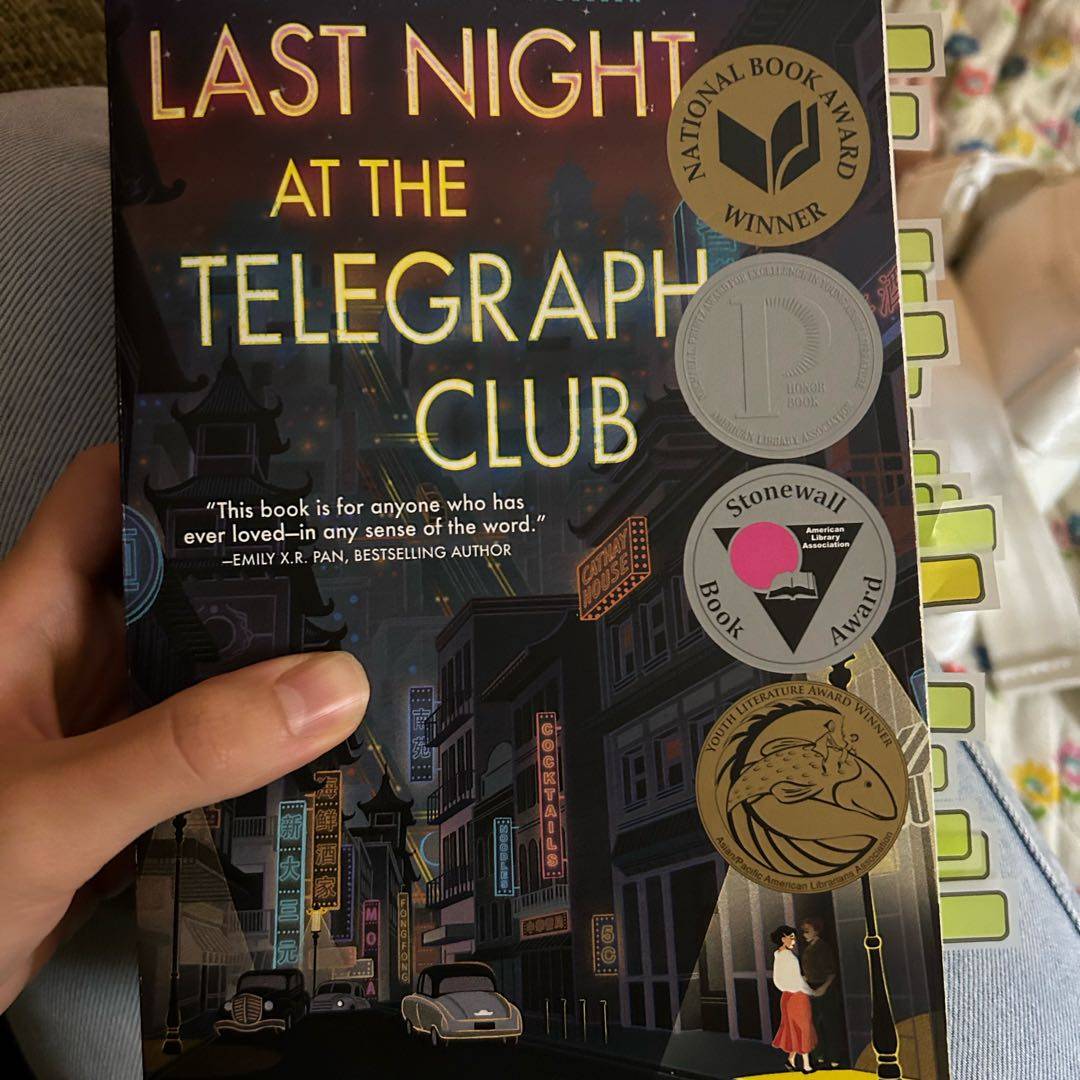
“The memory hurt her almost physically” (334) and “everything she and Kath had done could be erased so easily” (378) were quotes I found relatable regarding loss of loved ones. Whether it be through death, a lost relationship, etc, it‘s hard to not replay the memories of a past lover, friend, or family member and long for them. Lo does an exceptional job at evoking emotions in the reader, and her writing flows naturally without embellishment.
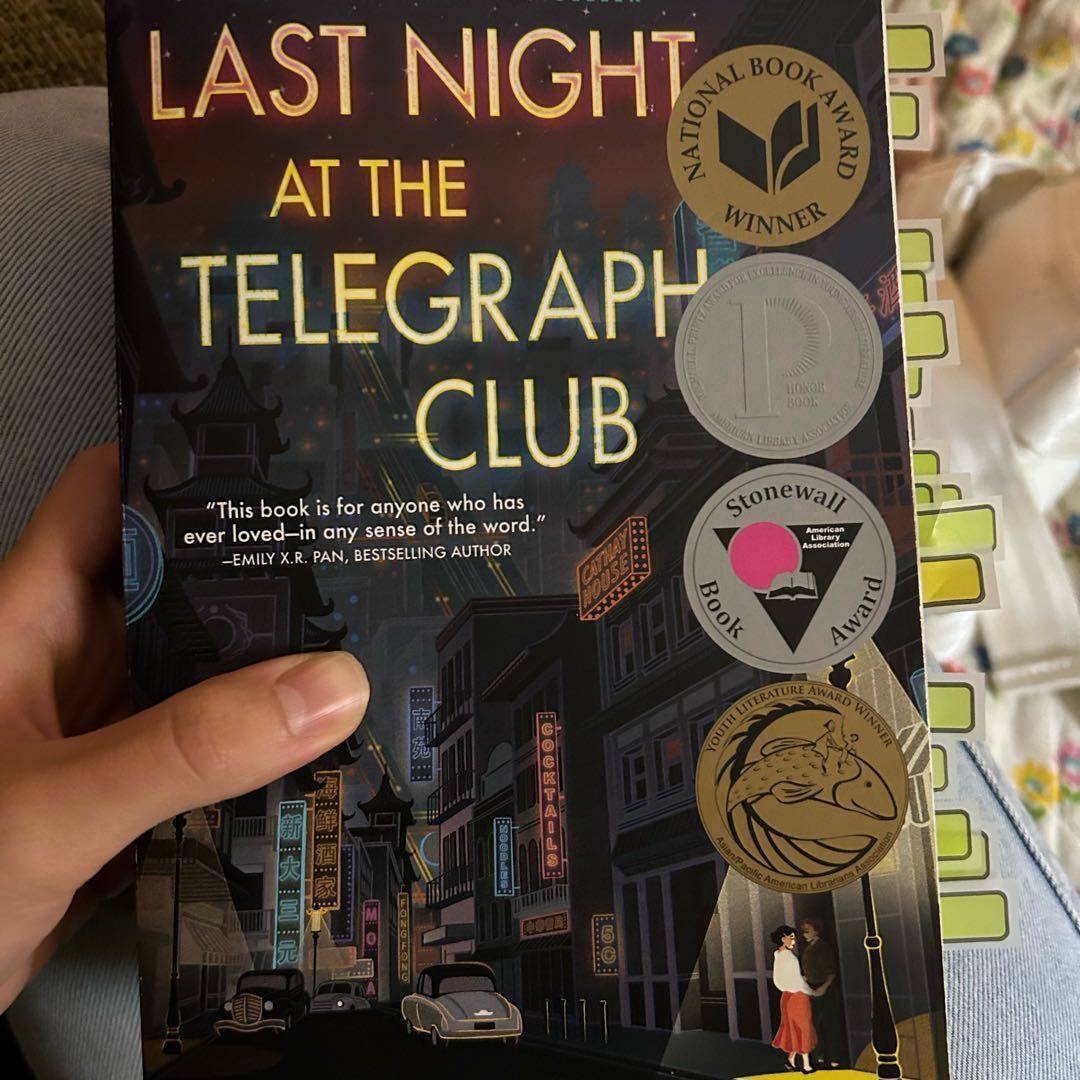
When Lily is about to confront her mom about the Telegraph Club, she thinks “you (her mom) will never look at me like this (with affection) again” (325). When her mom hears the news, she says it must have been a mistake and that “whoever Wallace saw…it wasn‘t Lily” (327). Lily‘s mother refuses to see her daughter. It‘s heartbreaking to think of her mother‘s unwillingness to love her.
Ok so I wanted to make a first impression post: So when we opened with the whole pageant, I really liked the contrasting opinions between Lily and Shirley and their comfort levels with seeing women in revealing outfits. First, it made me hate pageants. But then it made me feel like I was in sixth grade again at the pool with my older cheer mates and how self conscious i was about my body. It just felt so real, even being set back in the 50s.
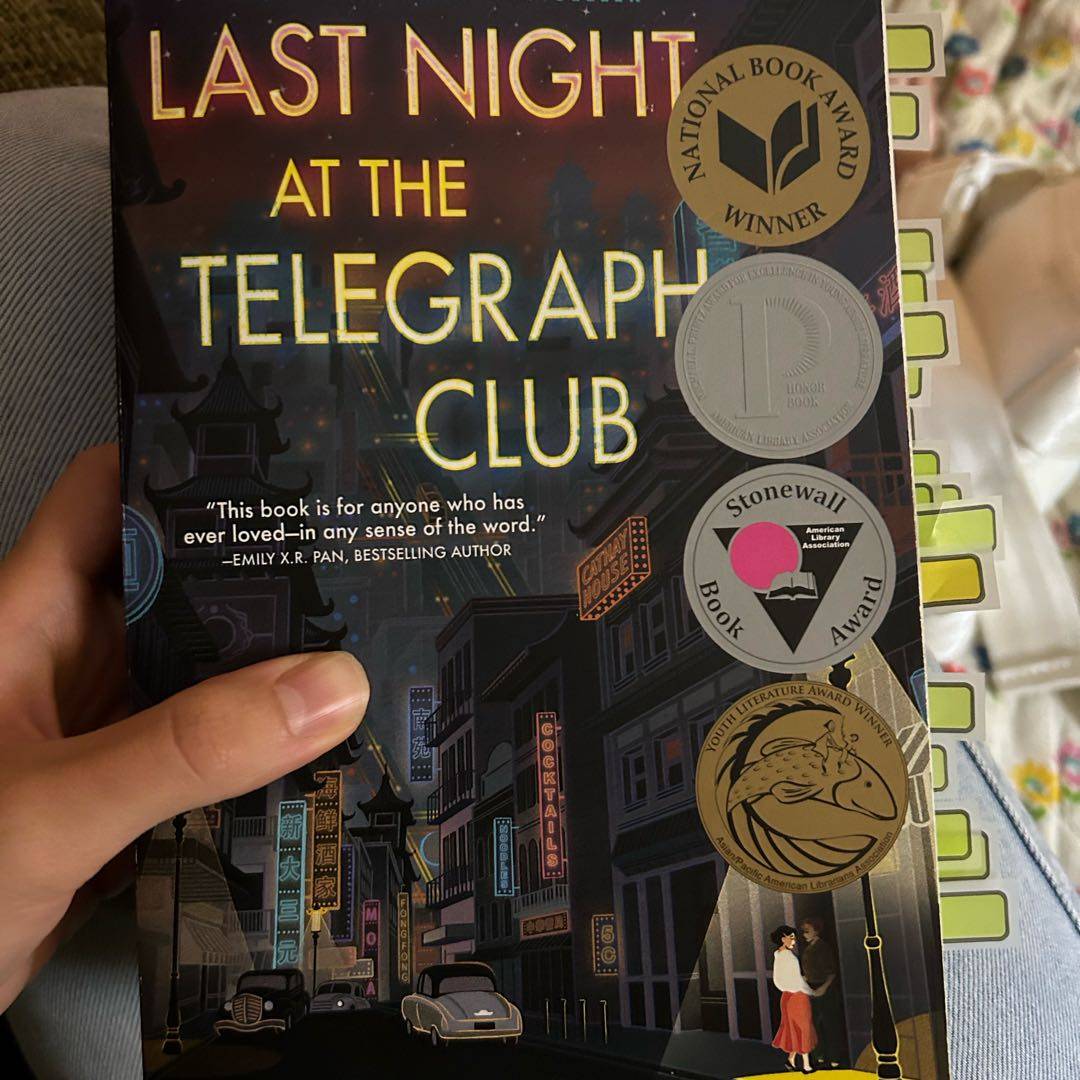
(part 2 of post 1) - In contrast, Kath and Lily support and encourage each other‘s interests. On page 221, Lily is said to miss “having Kath listen to her. Rockets to the moon didn‘t seem so far-fetched when Kath listened to her”. I also noticed Shirley tries to make Lily do things that make her uncomfortable (go to the dance with Will, be on her pageant board, etc). Unlike Shirley, Kath always makes sure Lily feels comfortable in new situations.
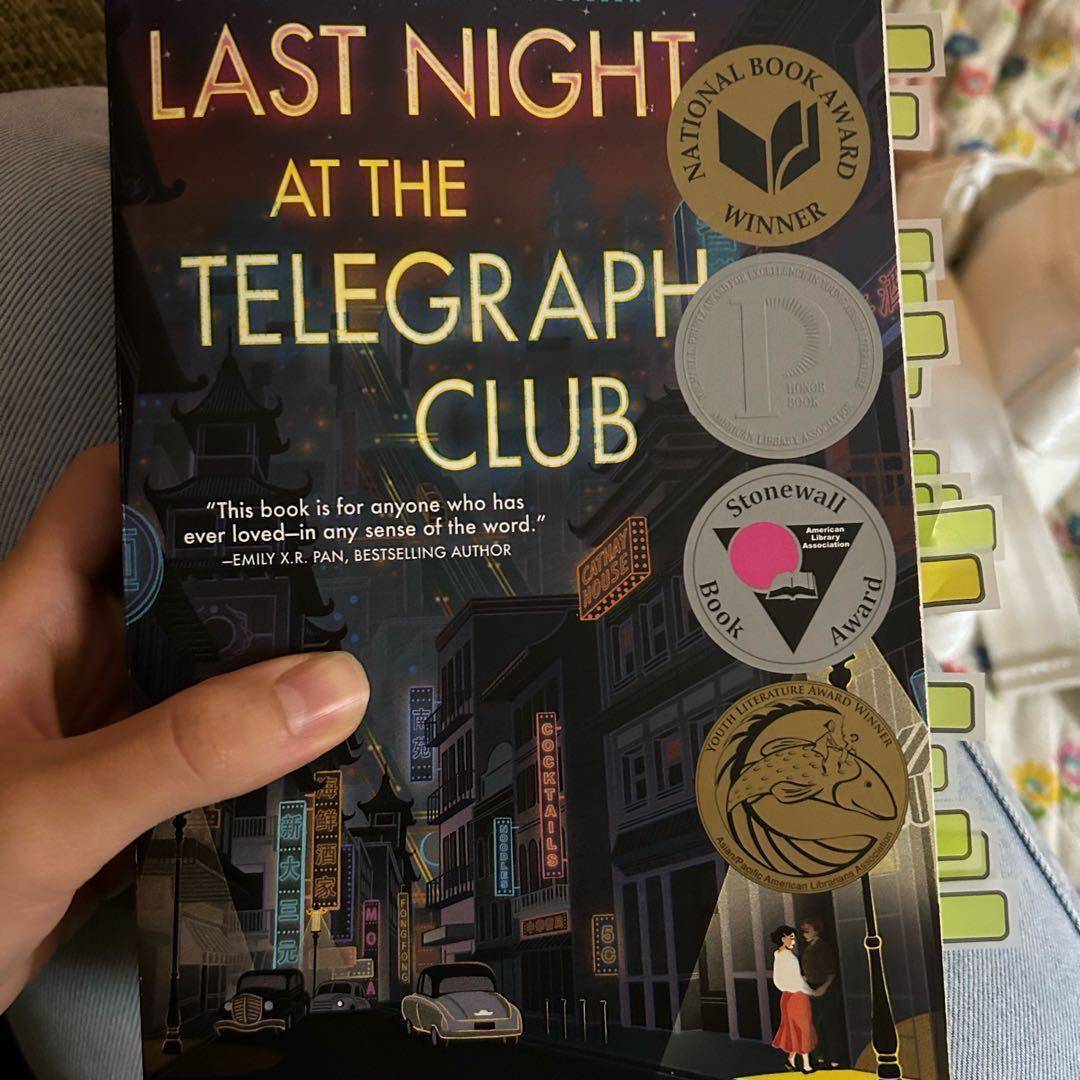
While reading this book, I noticed a theme of authentic vs superficial friendship. Shirley consistently ignores Lily‘s interests and instead focuses their conversations on herself. On p.215, Lily considers sharing her interest in studying aeronautical engineering, but she “knew Shirley wouldn‘t be interested, and she might even be resentful of Lily‘s aspirations”…(continue to next post).

This part of the novel - where Lily stays at Lana‘s - is so impactful and symbolic to me. Lily doesn‘t have any keys to her own house, where her mother disapproves of her; Lana gave Lily the keys to her apartment after only knowing her for a short while. This symbolism is very subtle, but so representative of where Lily feels accepted.